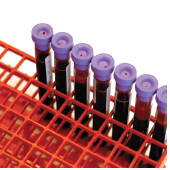The current study was conducted to determine glutathione levels and antioxidant enzyme activities in the drug-naive first-episode patients with schizophrenia in comparison with healthy control subjects. Twenty-three patients in their first-episode of schizophrenia and 40 healthy control subjects were recruited in this case-controlled study. In patients, blood samples were obtained prior to the initiation of neuroleptic treatments. Glutathione levels, including total glutathione (GSHt), reduced glutathione (GSHr) and oxidized glutathione (GSSG), along with the antioxidant enzyme activities superoxide dismutase (SOD), glutathione peroxidase (GPx), and catalase (CAT), were determined by spectrophotometry. Results revealed that GSHt, GSHr, and GPx activity were significantly lower in patients than in controls, whereas GSSG was significantly higher in patients. In addition, CAT activity was significantly lower in patients while the SOD activity was comparable to that of controls. The authors concluded that a glutathione deficit may be implicated in psychosis and may serve as an important indirect biomarker of oxidative stress in the early course of schizophrenia. These results provide support for further studies of the possible role of antioxidants as neuroprotective therapeutic strategies during the early stages of schizophrenia. BMC Psychiatry. 2011 Aug 2;11(1):124. PMID: 21810251.
Home Research News Decreased glutathione levels and impaired antioxidant enzyme activities found in early schizophrenia









